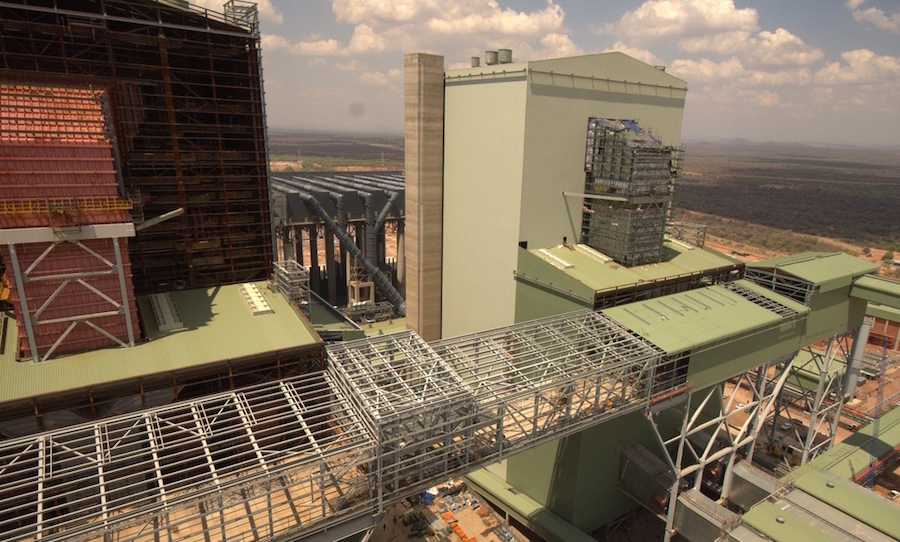Two subsidiaries of Tokyo-based Hitachi Ltd have been debarred by the African Development Bank (AfDB) over corruption allegations involving the 4,764MW coal-fired Medupi power plant project in South Africa.
The one-year conditional debarment is against the Duisburg-based Hitachi Power Europe GmBH and the Johannesburg-based Hitachi Power Africa (Pty) Ltd, the consortium that won a $2.8-billion contract in October 2007 for the design, manufacture, supply, erection and commissioning of six coal-fired steam-generator units at the Medupi thermal plant.
“Debarment will be terminated as soon as Hitachi enhances its integrity compliance program to the standard set by the AfDB Integrity Compliance Guidelines,” the bank said early December.
Hitachi, as part of the settlement agreement with the pan-African bank, had agreed to finance an anti-corruption drive that is being spearheaded by the bank in Africa.
“The sanctions imposed under the settlement agreement reflect the level of cooperation provided by Hitachi Ltd in the investigation into the Medupi matter,” said Anna Bossman, the director of AfDB’s Integrity and Anti-Corruption Department.
In September Hitachi agreed to pay $19 million to settle the U.S. Securities Exchange Commission charges of violating the Foreign Corrupt Practices Act. Hitachi is listed on the New York Exchange and therefore falls under the SEC jurisdiction.
SEC accused Hitachi of disposing a 25% stake in its Hitachi Power Africa subsidiary to Chancellor House, the investment arm of South Africa’s African National Congress, the country’s ruling party.
“This arrangement gave the front company and the ANC the ability to share in the profits from any power station contracts that Hitachi secured,” SEC said in September.
The regulator said Hitachi subsequently won the multibillion-dollar boilers contract and paid ANC’s affiliate $5 million, terming it “dividends.” The payment was based on profits delivered from the contracts, according to SEC. Hitachi also paid the ANC’s front another $1 million “success fees.”
The director of SEC’s enforcement division, Andrew J. Ceresney, said it was Hitachi’s internal control procedures that “enabled its subsidiary to pay millions of dollars to a politically-connected front company for the ANC to win contracts with the South African government.”
SEC said Hitachi “unlawfully mischaracterized those payments in its books and records as consulting fees and other legitimate payments.”
AfDB says it financed the acquisition of six units of super critical boilers and six turbo generators for the Medupi thermal plant, whose efficiency is projected to be “40% compared to 34% of the sub-critical technology.”
The 794MW of Medupi’s unit six was connected to the national grid in March this year and became commercially operational in August.
Eskom says unit five’s 794MW will come online in March 2018, a year after it initially slated to be commercially operational. The last unit of Medupi is set to be fully operational by May 2019.
Technical mishaps, including faulty welding of the Hitachi boilers and failure at trial phase of France-based Alstom’s instrumentation and control system, delayed the scheduled completion of Medupi. Alstom later said it successfully installed its distributed control system, the ALSPA Series 6 and all related instrumentation at the coal powerplant under a $108-million contract awarded in 2009.


Post a comment to this article
Report Abusive Comment